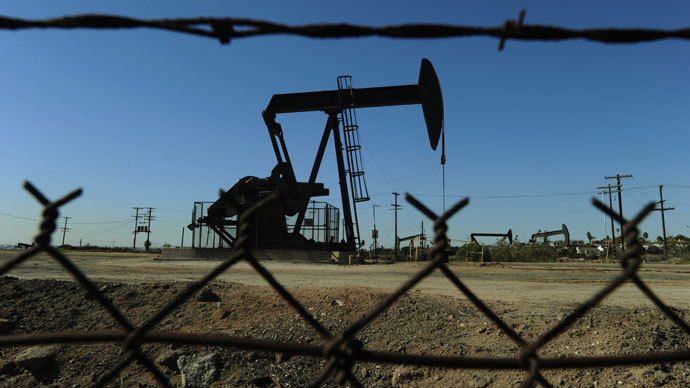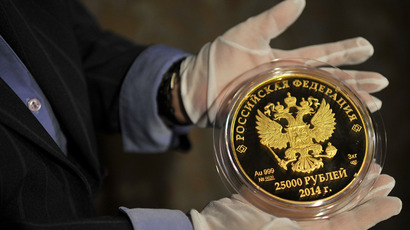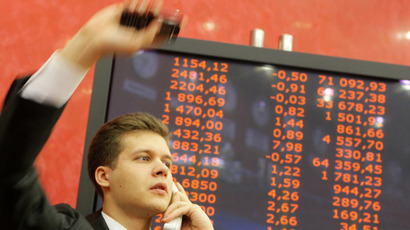Russia’s economy should start orienting on lower oil prices in 2014– IMF

Given the shaky global economic environment, Russia should revise its expectations of oil prices and start to plan its budgetary expenses on the basis of lower oil, the IMF said in its Tuesday report.
Russia’s budgetary rule “should be tightened starting next year—via a lower benchmark oil price and reduced net borrowing—to allow rebuilding of fiscal buffers by saving more of the exhaustible oil revenue,” the Washington-based lender advised.
The budgetary rule was launched in Russia in 2013. It is used to calculate affordable budget expenses limits, which is determined by the average oil price.
“Russia could be affected by a sharp decline in oil prices or an acceleration of capital outflows if global economic and financial conditions worsen,” the IMF report said.
“The pre-crisis growth model, based on increasing oil prices and rising use of spare capacity, is no longer viable,” the paper added.
Slowing GDP growth in Russia, coupled with widening non - oil deficit are the main reasons for the IMF call for tighter budgetary rule, according to Timur Nigmatullin, an analyst from Investcafe. In 1Q 2013 Russia’s budget deficit that doesn’t take into account oil revenues went up to 10% of the country’s GDP, the analyst reminded. Oil provided for more than 50% of the total budget revenues during the period, Nigmatullin continued.
Russia’s GDP between January and March of 2013 added 1.6%, which compares to a 4.8% growth for the same period a year earlier. This year Russia’s economy is expected to grow 2.5%, which is set to rise to 3.75% in 2014, the IMF forecast said.
This may cause Russia’s government troubles with filling in the revenue side of the budget, should the oil price fall. “That’s why I agree with the IMF that it’s important to build up a reserve fund…” Investcafe analyst said. However, the proposal is unlikely to persued, as earlier Russia’s government stepped out with its initiative to stimulate the economy through increased spending, Nigmatullin concluded.














